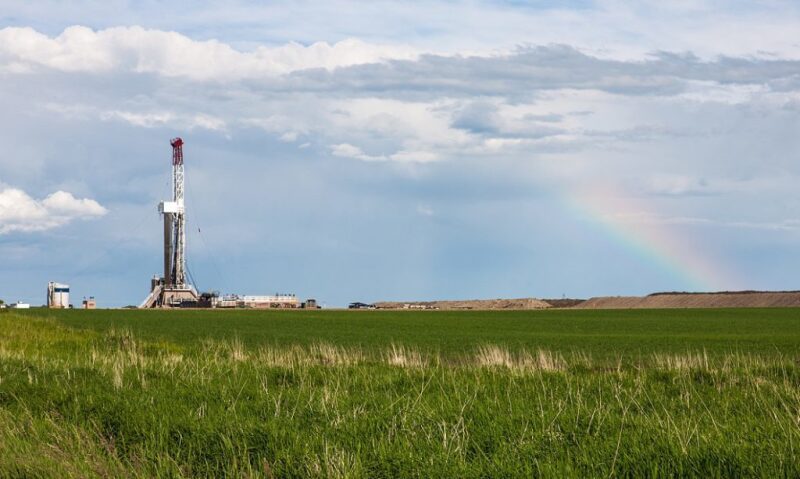Calgary-based Baytex Energy is acquiring Ranger Oil, a pure play Eagle Ford E&P company, for $2.5 billion in cash and stock, including the assumption of debt.
Baytex said on 28 February that the transaction was unanimously approved by the board of directors for both companies and that the deal is expected to close late in the second quarter of 2023.
Ranger shareholders would receive 7.49 Baytex shares plus $13.31 cash for each common share, for a total consideration of about $44.36 per share, representing a premium of 7.38% to Ranger's last closing price, according to the terms of the deal.
The deal is the latest in what has been an active period of dealmaking in the Eagle Ford. In two recent examples, UK-based INEOS Energy scooped up Chesapeake Energy’s position in the play for $1.4 billion, and at the end of 2022, Houston-based Marathon Oil completed its $3 billion purchase of Ensign Natural Resources.
"The Ranger acquisition is strategic. We are acquiring a strong operating capability in the Eagle Ford, on-trend with our nonoperated position in the Karnes Trough and driving meaningful per-share accretion on all metrics,” said Eric Greager, president and chief executive of Baytex.
“The transaction more than doubles our EBITDA and nearly doubles our free cash flow. The Ranger inventory immediately competes for capital in our portfolio and brings 12 to 15 years of quality oil-weighted drilling opportunities. We are building quality scale and a more durable business with a lower breakeven WTI price."
The transaction adds 162,000 net acres in the Eagle Ford’s crude oil window, highly concentrated in Gonzales, Lavaca, Fayette, and Dewitt counties and on-trend with Baytex's nonoperated position in the Karnes Trough, the company said.
The Eagle Ford Shale currently represents about 30% of Baytex’s total production, according to the company's website.
Baytex said its production is forecast to average 155,000 to 160,000 BOED (52% light oil, 22% heavy oil, 11% NGLs, and 14% natural gas) for the 12-month period following the closing. The transaction is expected, on a pro forma basis, to generate annual EBITDA of about $2.4 billion and annual free cash flow of about $1 billion.
Additionally, the transaction brings an estimated 741 net, undrilled locations—an inventory life of 12 to 15 years—that immediately competes for capital in Baytex’s portfolio, the company said.
“This includes 523 quality Lower Eagle Ford opportunities and 218 additional Upper Eagle Ford and Austin Chalk opportunities. Lower Eagle Ford locations are expected to generate initial rates of return greater than 75% and payouts of less than 18 months at $75/bbl WTI. Baytex believes it can grow production modestly from the acquired assets with two rigs and approximately 50 to 55 net wells per year,” the company said in a statement.
Likely to Raise Questions
This deal is the first merger between public companies since the merger of Oasis Petroleum and Whiting Petroleum, said Andrew Dittmar, director at Enverus Intelligence Research.
"Broadly, there is room for more consolidation in the industry and a consensus that work remains to be done in getting fewer but larger E&Ps in the market," said Dittmar. "After seeing an active market for public-public deals in late-2020, that process had stalled as most buyer attention turned to inventory-rich private equity-sponsored companies. While this one deal may not presage a rush of public company deals, it is positive that there are still SMID-caps open to sale and buyers willing to look at them."
He added that given the relative lack of inventory that some small to mid-cap companies hold and the challenges of buying more at their current stock valuations, he thinks more should explore an exit. He noted that only Ranger and Midland-area producer HighPeak Energy have confirmed exploring a sale.
“One of the outstanding questions was how much premium buyers would have to offer to tempt sellers given the industry is in far healthier financial shape than when prior rounds of corporate consolidation occurred. In previous rounds, buyers were able to make acquisitions at little to no premium to the seller’s stock price," he said.
Dittmar noted that the deal for Baytex adds a large, operated Eagle Ford position to their existing nonoperated interests in the play. However, while the price looks reasonable, there are limited synergies given the company has not previously operated assets in the Eagle Ford.
“This deal at least partly answers that question with Ranger taking a modest premium of less than 10%. Ranger also traded at what appears to be slightly more than the value of their current production with Baytex paying about half a million each for the company's undrilled inventory. That is in line with other deals that have similar quality inventory to Ranger, with most locations breaking even in the $50/BBL range. A company with more or higher quality inventory might look to command a larger premium,” he said.


